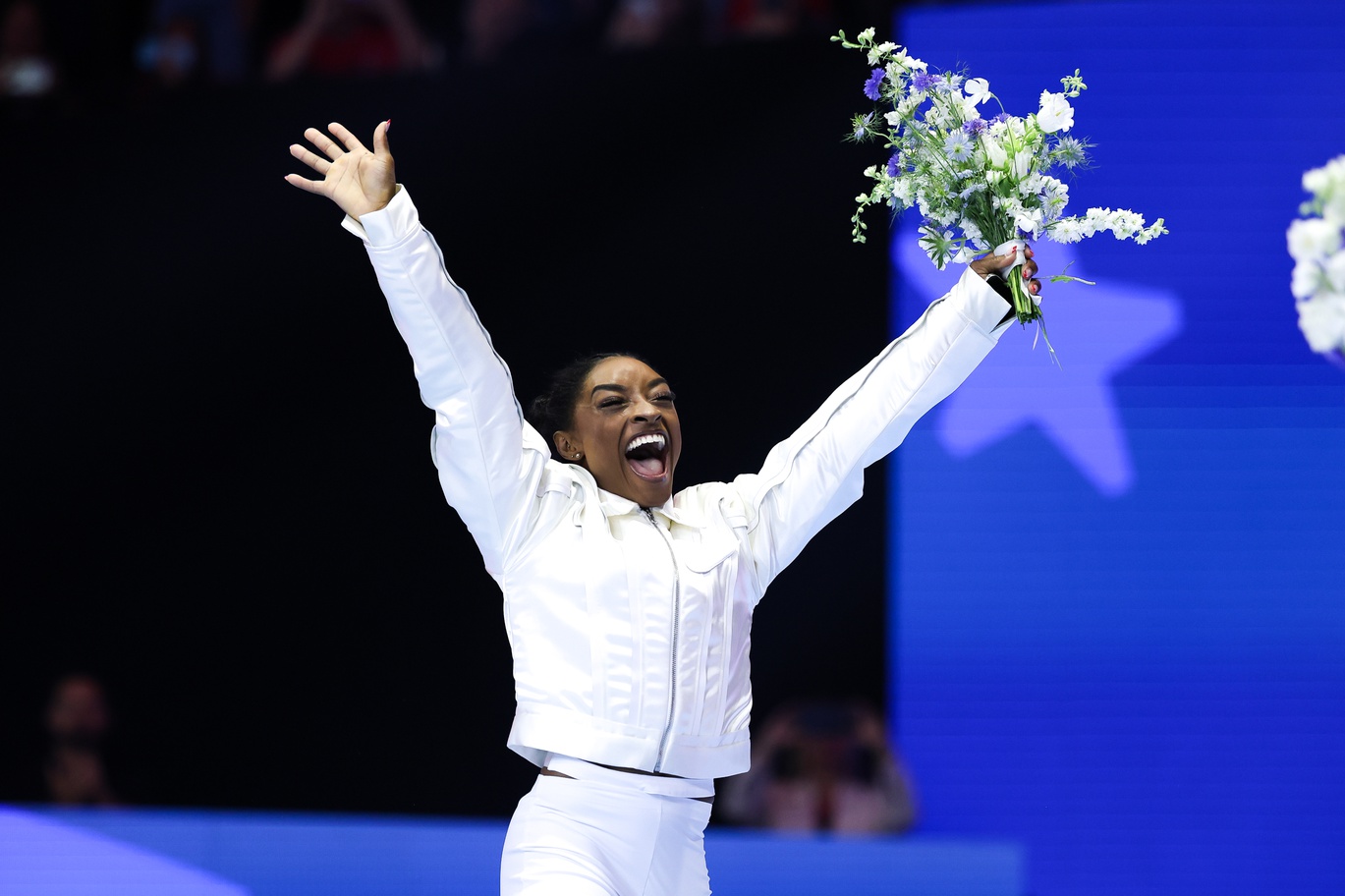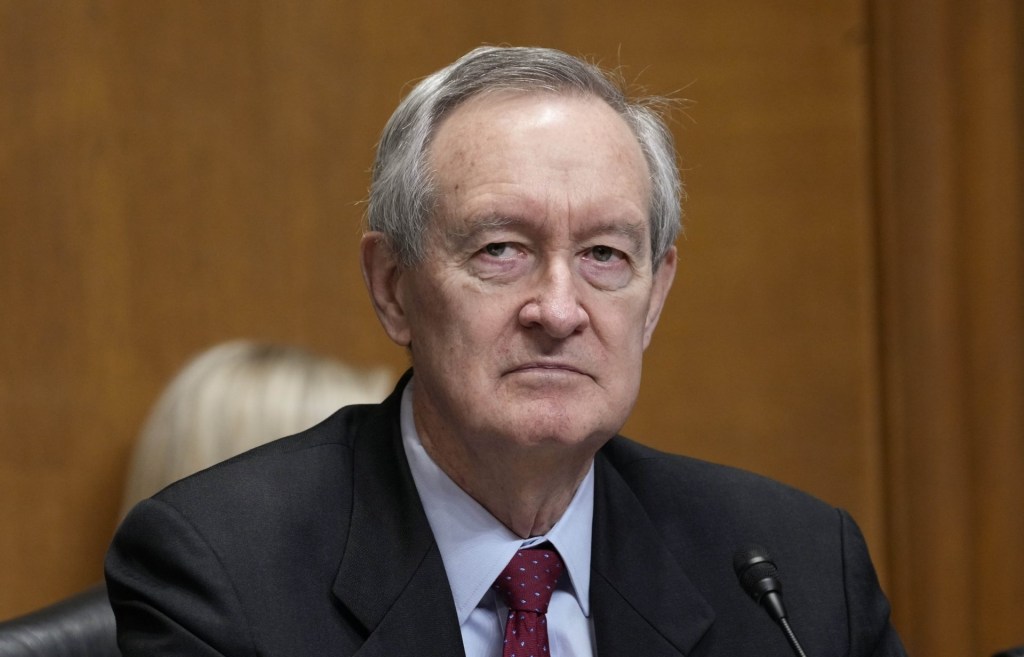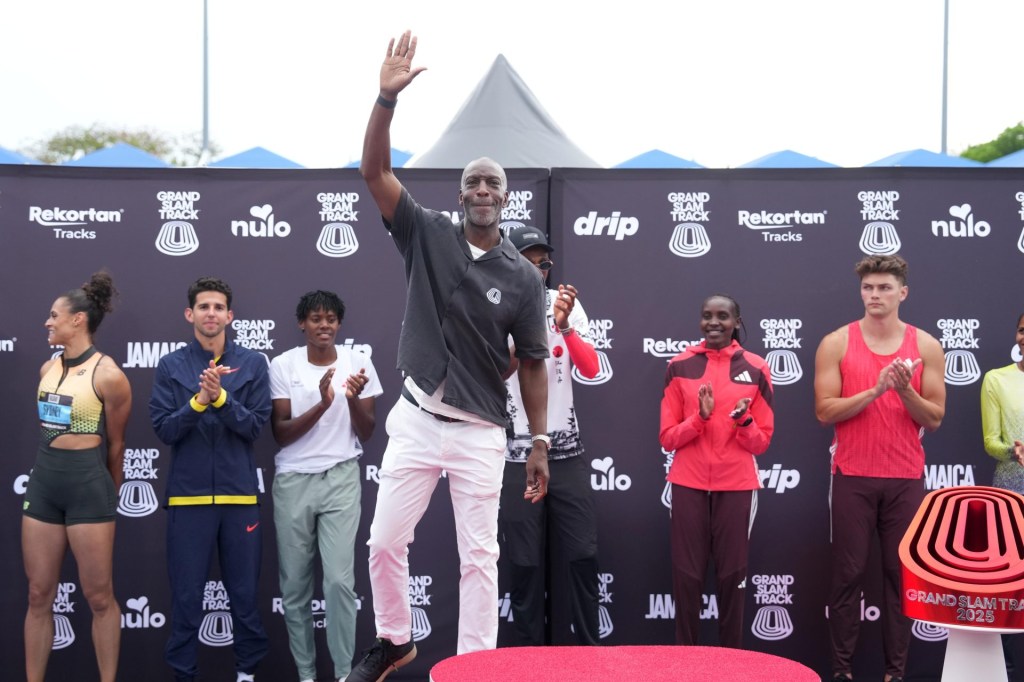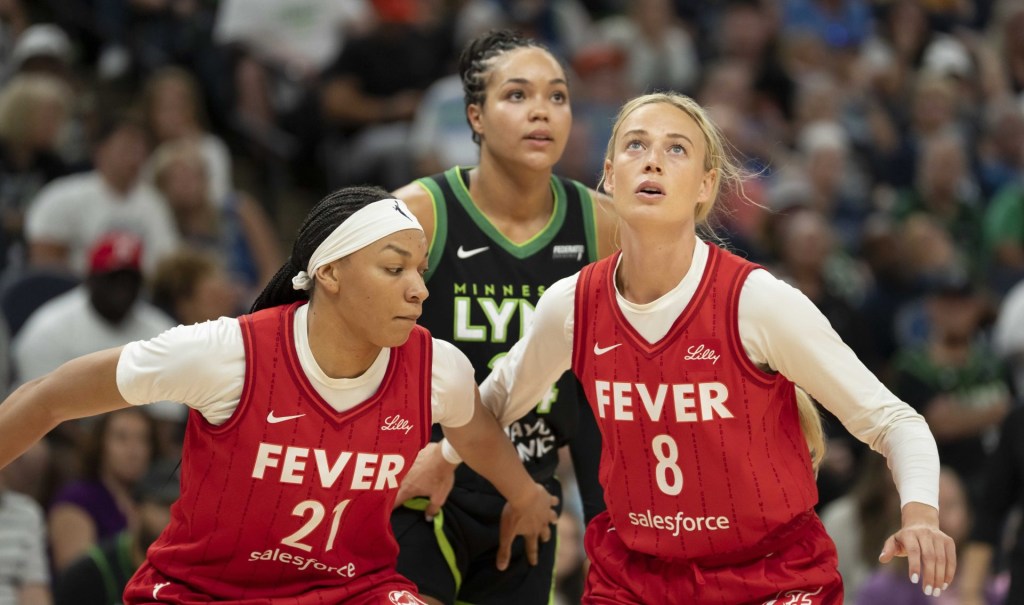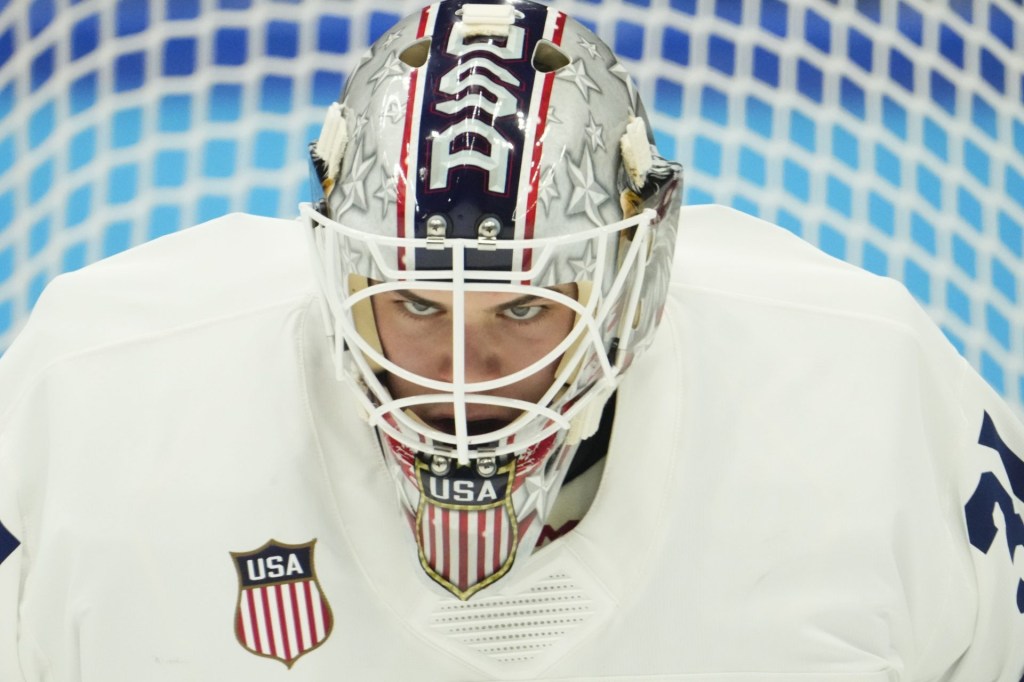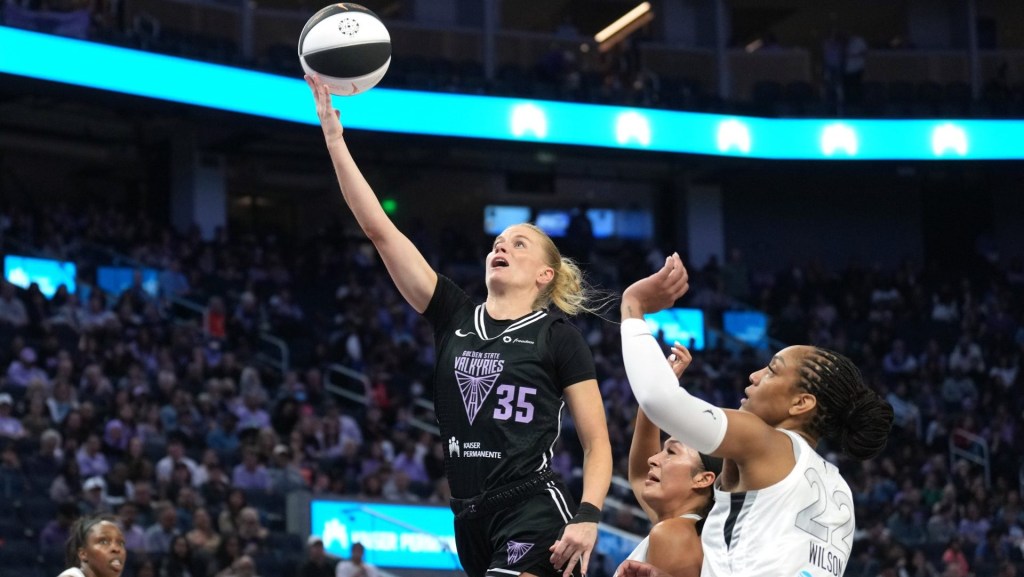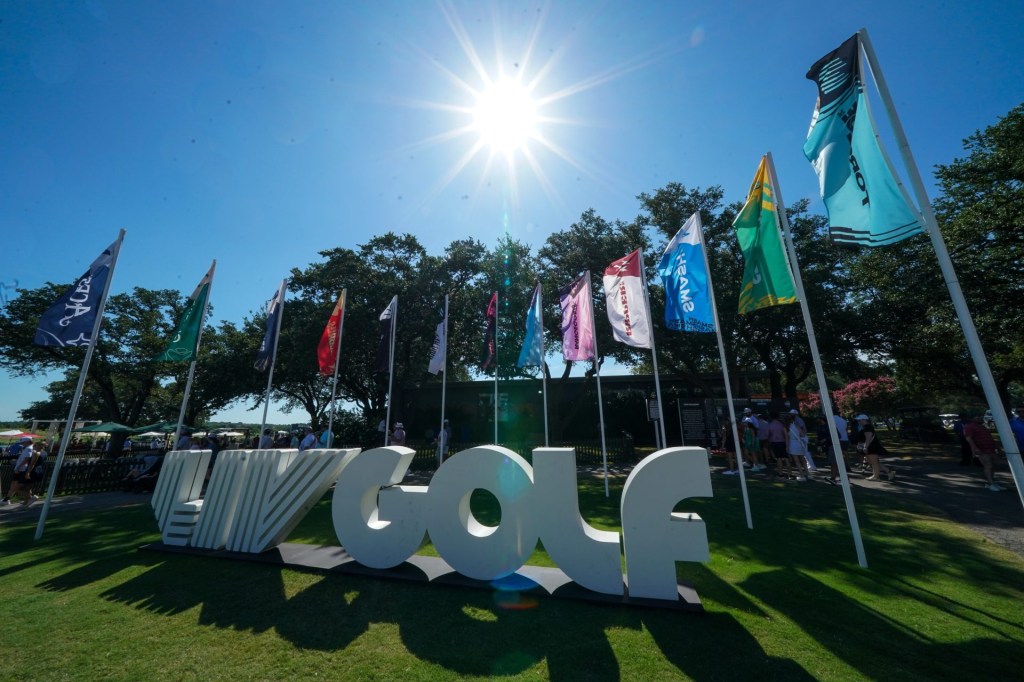For NBC and Team USA gymnastics, the key to thriving might just be investment in mental health support.
Throughout the past week, Beacon, a four-year-old golden retriever, has taken the sports world by storm as he comforted gymnasts during the Olympic trials in Minneapolis. It’s been a devastating few days for the sport, as several top prospects suffered injuries that ended their Paris Olympics hopes. Beacon and the 14 other dogs who were there to offer support represent one of several new resources that the U.S.’s governing body for gymnastics has implemented to help its Paris-bound athletes.
In 2021, Simone Biles made the major decision to withdraw from the Tokyo Games in 2021 citing mental health reasons—just months after tennis player Naomi Osaka did the same at the French Open. Biles may have cost her team some gold medals, but the move helped raise awareness around athlete wellbeing. Three years later, leading up to Paris, gymnasts are now reaping some benefits from those conversations with extra investment in mental health. The additional resources can help gymnasts perform at their best—and, in turn, hopefully boost their sport, and even the Olympics overall.
“NBC will certainly put a spotlight on the Gymnastics team overall,” sports marketing executive Trish Tulloch tells Front Office Sports. “But having the team in position to medal with our very best athletes competing does impact viewership. So, yes, keeping the team healthy so they can compete and be their best is indeed very important.”
In 2022, USAG started offering eight mental health visits up to $125 each annually to athletes, and four visits for coaches. USAG tells FOS that the program, funded partially by its leotard partner GK Elite, has since expanded; now, as long as everything stays under budget, the number of visits isn’t limited to just eight. USAG also gets feedback from monthly meetings with athletes representing every level of gymnastics, along with answers from the annual health and wellness surveys it started sending four years ago, according to The Houston Chronicle. 2023 results provided by USAG show the vast majority of athletes feel the organization creates a safe space to open up about mental health struggles.
The U.S. Olympic and Paralympic Committee has also expanded its mental health services for all sports since the last Olympics. The USOPC first founded its mental health department with seven staffers in 2020, and by 2023 it had doubled to 14 people, added more programming, and created procedures specifically to help gymnasts going through a mental health crisis, The Chronicle reported.
Therapy dogs first joined the team last summer at a USAG event in Indianapolis. Beacon’s ticket to Paris isn’t booked yet; a USAG spokesperson told People the situation is a “bit complicated,” but the governing body is looking into getting him across the pond. Regardless, athletes say the therapy dog program has helped them during the process leading up to the Games. Defending all-around gold medalist and Paris-bound Suni Lee posted a photo with her furry friend after the first day of trials with the caption “thank god for beacon.”
Why are USAG and USOPC devoting so many more resources for elite athletes this Olympics than they did just three years ago? In a very real sense, athletes need it. The American College of Sports Medicine reported in 2021 that about 35% of elite and professional athletes suffer from depression, anxiety, disordered eating, and/or burnout. The discourse around mental health in sports, especially in one as unforgiving as gymnastics, has reached a point where organizations must incorporate sports psychology.
It’s also a smart business decision.
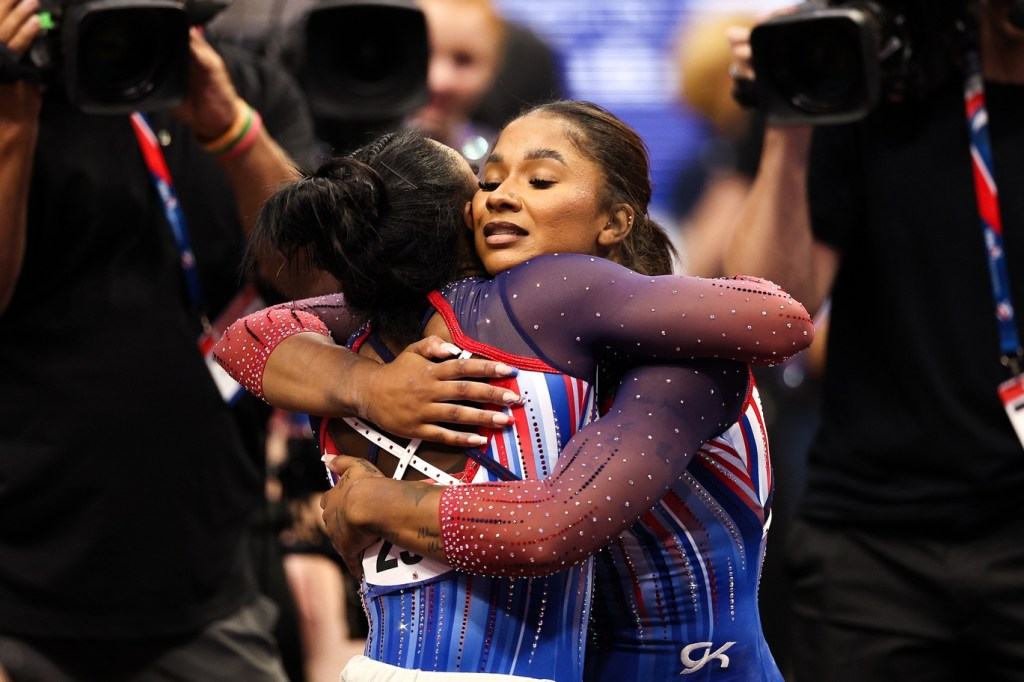
For one, it’s a great PR spin for the gymnastics world. The Larry Nassar scandal inflicted significant harm on athletes, which cost USAG and USOPC $380 million in settlement money. Then, a few years later, its superstar athlete suffered a mental health crisis on the world’s biggest stage. A golden retriever called Beacon, named for being a positive light, is the perfect tool to shift the narrative around mental health in the sport.
“Without a doubt, USAG can receive positive PR for implementing winning strategies like providing therapy dogs to help with the mental aspects of competition,” says Tulloch, who is the VP of partnerships at the marketing agency 160over90 and does a large number of deals in women’s sports. “It shows they get it—mental health is something many people deal with, including world-class athletes.”
USAG has been pretty open about the public benefits of having a “Goodest Boy” on their side. “Although athletes hadn’t specifically requested therapy dogs, it’s safe to say once the program was launched, it became our most popular and most visible program,” USAG said in a statement provided to FOS.
But beyond the feel-good images, gymnastics and the Olympics also benefit greatly from healthy gymnasts performing at their best. Viewership fell during the pandemic-impacted Tokyo Olympics to what was at the time the worst primetime TV draw for any summer or winter Games at 15.6 average viewers each night (the 2022 Beijing Olympics recorded a new low). When Biles did compete, her presence lifted viewership numbers, and gymnastics was one of the best TV draws of the Games.
The Olympic trials have already showed promise that gymnastics can help NBC bounce back to pre-pandemic viewership, with the sport recording the most-watched trials broadcast since 2016. Sunday night averaged 7.6 million viewers, surpassing 5.9 million in 2021, and outperforming all the other trials this year. Public interest in Beacon may have helped get a few more eyeballs, but that audience undoubtedly tuned in to watch a smiling Biles, who spoke in an interview about her mental health after qualifying for her third Olympic team.
“Being in a good mental spot, seeing my therapist every Thursday is kind of religious for me,” Biles said. “So, that’s why I’m here today.”
